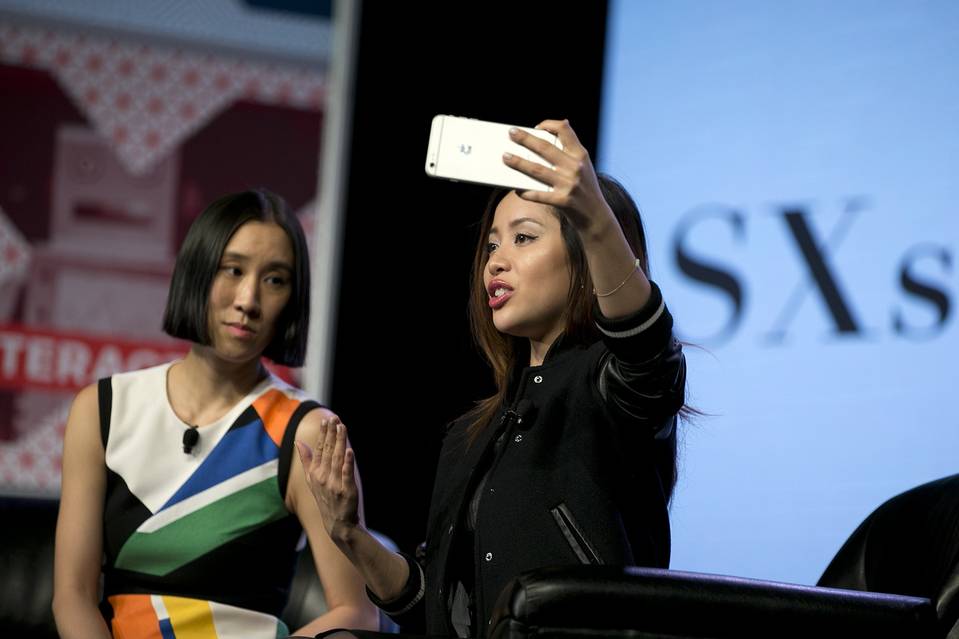Online ‘Influencers’ Become Hot Assets
Social-media personalities lure venture capital as they hawk goods to followers
Some of the hottest assets in the Chinese Internet industry at the moment are a collection of trendy individuals who are valued for their ability to peddle merchandise in their social-media posts.
When Gu Mengjie moved back to China from Australia in mid-2014, he didn’t expect his meager online renown as an art-history writer would bring him much fortune.
Now working with 11 employees, he charges 400,000 yuan ($61,567) each for advertisements accompanying his social-media posts—long, often whimsical pieces about art and artists that appeal to young Chinese curious about Western art but averse to lectures.
The 32-year-old says he was even more surprised when about a dozen venture capitalists started approaching him late last year about investing in his firm, Coyeah Community, talking valuations of 100 million yuan, or about $15 million. “To be honest, I don’t believe what they told me [about my valuation] and I don’t know how much I should be valued at,” says the former graphic designer, known to his online followers as Grandpa Gu.
China didn’t invent the idea of commercializing influential online personalities.
In the U.S., many such so-called influencers have become famous on YouTube and Instagram and earned money as partners with brands. A few have attracted venture-capital investments, too. Michelle Phan, a 28-year-old former art-and-design student in Florida amassed over eight million subscribers on YouTube since 2007 by showing how to apply makeup. Last fall, Ipsy Open Studios, a beauty subscription company she co-founded, raised $100 million from TPG Growth and Sherpa Capital.
But if China is later to the phenomenon, the speed of transition through instant fame to instant wealth for influencers in the country is often faster, with valuations sometimes soaring in a matter of months—a pace some industry observers think is risky.
Take Jiang Yilei, for instance, a 28-year-old film student who posted short videos on social-media sites that mock young women as well as address some of their concerns, such as why women love shopping and how to get back to nagging parents and relatives during the Lunar New Year holiday.
Ms. Jiang, known to her followers as Papi Jiang, only started to post videos online last October, but her playful parodies have been infectious, already gaining her over eight million social-media followers. Last week she received 12 million yuan in funding from a group of backers including one of China’s top angel investors, ZhenFund, in a deal that values her social-media operation at 100 million yuan, according to a person familiar with the matter.
Ms. Jiang’s operation has no income yet, though one of her investors said in a briefing to advertisers last weekend that in an April auction he expects the advertisers to bid for ad slots worth over 10 million yuan on Papi Jiang’s videos, according to a person who attended the briefing.
Ms. Jiang didn’t respond to a request for comment.
The investors declined interview requests.
Lin Chen, assistant professor of marketing at China Europe International Business School in Shanghai, says she believes Ms. Jiang’s investors could hurt her by trying to monetize her online popularity too quickly. Brands usually take time to test the market before they choose a representative, so Papi Jiang’s investors should wait until she develops a clearer personal image, Ms. Lin says.
Still, one Chinese venture capitalist cites Papi Jiang as a reason he is ready to invest in Mr. Gu’s firm at a valuation between 150 million to 200 million yuan. The investor argues that the valuation is reasonable because Mr. Gu’s team has started curating art exhibitions and selling tickets to art exhibitions, too.
China’s social-media celebrities wield particular clout because they fill a void of influence in a country where all established media are controlled by the government and viewed as irrelevant by most young people.
“The relationship between Chinese consumers and their digital identities is much more emotional than in the U.S.,” says Tom Doctoroff, Asia chief executive of advertising agency J. Walter Thompson. “People project much more and they’re much more emotionally tied into whatever is talked about on the Internet. Therefore, the value of online opinion leaders is greater” in China.
One of the main platforms for social-media influencers is a Twitter-like service called Weibo. Once a forum that included active social and political discussion, Weibo is now dominated by entertainment and lifestyle posts after the government cracked down on online dissent in recent years.
Social-media influencers are hot right now because young people like entertainment content and are more willing to spend, says Cao Zenghui, Weibo’s vice president of operations.
About 53% of Weibo’s daily 106 million active users are between 16 and 25 years old, according to the company’s latest available data.
Some of China’s online influencers are leveraging China’s role as a manufacturing hub. They follow a similar pattern: Develop a Weibo following and open a fashion shop on Alibaba Group Holding’s Taobao Marketplace, where they sell clothing and accessories that they get made in the country’s factories. The influencers use their interaction with followers to narrow the list of items and drum up preorders. In China’s biggest online-shopping festival, last November, 11 out of 20 top-selling women’s fashion shops on Taobao were owned by social-media influencers, according to Alibaba, which is a strategic investor in Weibo.
As for Mr. Gu, he and his team are preparing a business plan for their first round of funding. He says he wants to expand from photo and text to video and exhibition. That would require a lot more capital, he says.
Article Written By: Li Yuan
0

